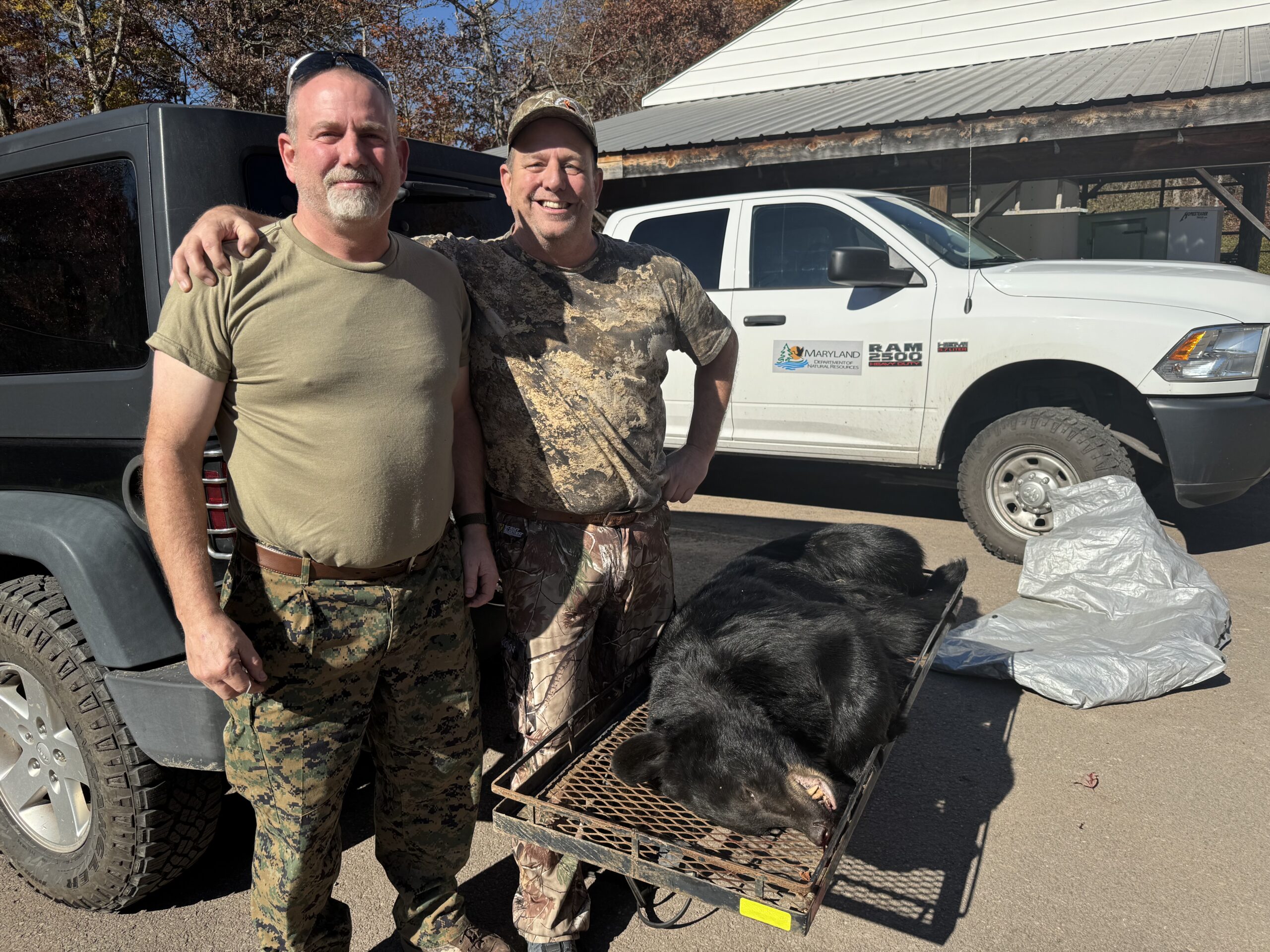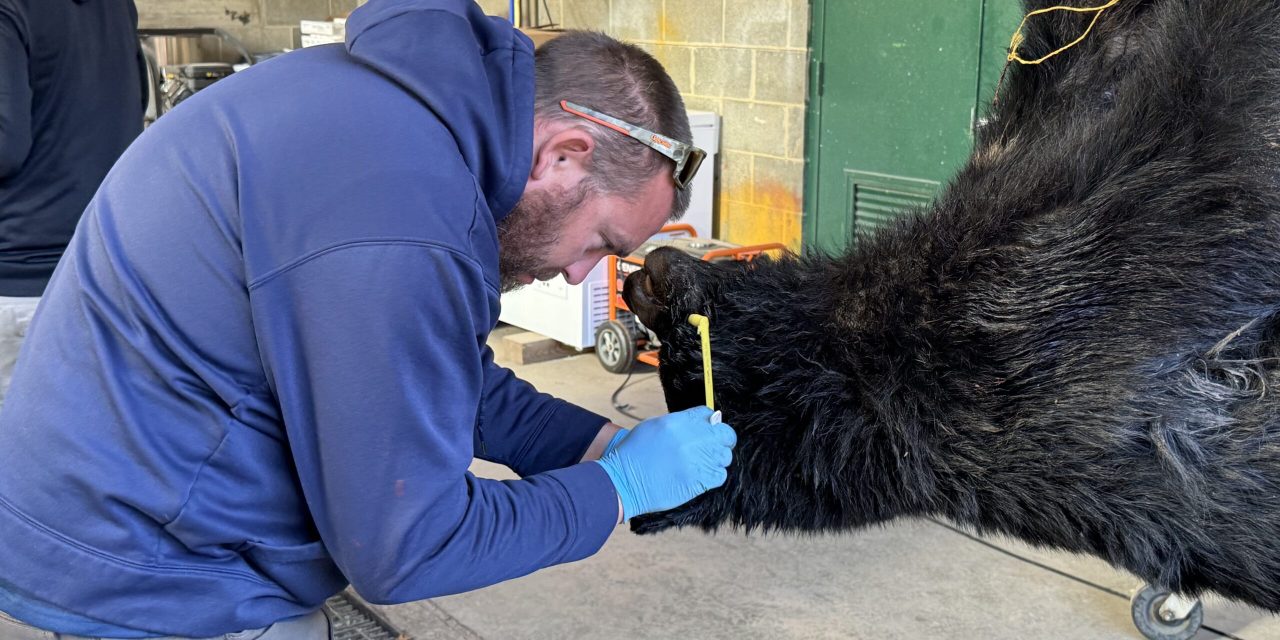By ROBERT STEWART
Oakland, Md. – Matthew Lidie, 57, and David Lidie Sr., 63, of Baltimore County were among the first to arrive at the wildlife management area this week with a dead bear in tow. It had only taken David the first 30 minutes of his hunt to make the kill.
The feat had great personal significance for the two brothers, who had stayed overnight in a local cabin with no electricity and no running water in order to pursue a bucket-list item – hunting a black bear.
“I was given two things from my parents that I enjoy,” said David Lidie. “My mother was all about family, and my dad was all about hunting and nature.”
The two were among 950 people who got licenses to join Maryland’s six-day bear season, which started Monday and runs for a week in the state’s western counties. The hunt is part of Maryland’s Department of Natural Resources bear management plan, an annual event for the past two decades.
By noon that first day, five other hunters had arrived intermittently at the Mt. Nebo Wildlife Management Area. Upon each arrival, the DNR staff greeted the hunters and helped them unload the lifeless bears. The team measured the bears, weighed them, checked the gender, learned about where the kill took place and extracted a tooth from the animal.
Information they gather helps them better understand and plan their bear management strategies, said Jonathan Trudeau, the game mammal section leader of the wildlife and heritage service of Maryland’s DNR.
 Like the Lidie brothers, other hunters say that the activity has deep personal meaning. For Jesley Miller, 29, of Swanton, Md., it’s about service to the community.
Like the Lidie brothers, other hunters say that the activity has deep personal meaning. For Jesley Miller, 29, of Swanton, Md., it’s about service to the community.
Jesley Miller, who said he’s been hunting since he was a teen, shows off the largest bear he’s killed so far. (Robert Stewart/Capital News Service)
“I enjoy it as a sport,” said Miller, “but it’s more than just a sport. It’s about helping our local farmers out.”
Miller said that bears damage acres and acres of farmers’ crops, especially in Garrett County. He said the black bear population has a problem with mange, which other hunters echoed, but believes that culling the herd helps minimize the skin disease. The DNR’s website says securing human food sources like trash cans and bird feeders can prevent bears from congregating and curb the spread of mange.
“We don’t want to get rid of them,” Miller said, “we like to hunt them. We like to see them.”
Still, he said the hunt is good for managing the bear population.
Animal rights advocates disagree. The Humane Society of the U.S. believes there are better ways to control the growing bear population. Out in nature, though, hunters believe in the merits of the activity.
Jon Dowden stands with his son in front of their truck and the bear they killed on Oct. 21, 2024. (Robert Stewart/Capital News Service)
Jon Dowden, 42, of Bloomington, Md., arrived slightly after noon. Dowden, who got choked up speaking about a recent death in his family, said he learned to hunt from his grandfather and his uncle. “It’s a multi-generational tradition,” he said.
“The kids know that taking an appropriate amount in a safe and legal hunt is a good way to manage that,” he said, referring to the growing bear population. “We try to instill good sportsmanship, an honest kill, and a clean kill.”
Dowden said he wants his kids to enjoy the outdoors, respect the outdoors, and put safety first.
One thing most of the hunters have in common – plans to feed friends or family from the hunt.
“I’ve never eaten bear,” said David Suarez, 54, from Pennsylvania. “We’re going to go skin it out, carve it up, and that will be dinner.”
Matthew Lidie says that’s how it should be.
“It’s food. It’s just the big circle of life,” said Suarez. “We eat what we hunt.”




Recent Comments